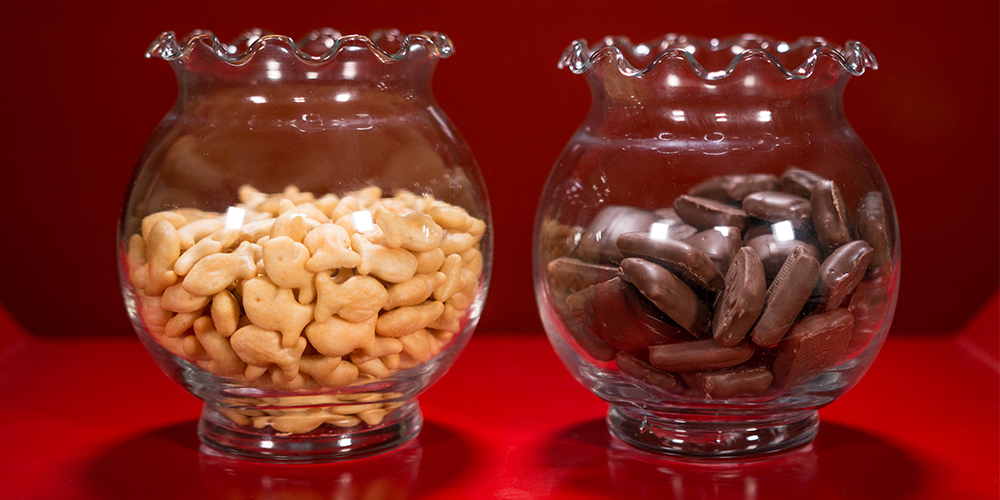Editors’ Note: This feature appears as it was published in the spring 2018 edition of UT Dallas Magazine. Titles or faculty members listed may have changed since that time.

Very young children naturally regulate their food intake. But as they grow older, dietary patterns change. Researchers are taking a closer look at how this shift takes place.
Dr. Shayla C. Holub, head of the psychological sciences PhD program, examined the preconceptions about children’s emotional eating habits.
The study showed that, when presented with snacking options, sad children ate more chocolates than the happy children, who in turn ate more chocolates than the neutral group. Conversely, the neutral group ate the most goldfish crackers, followed by the happy children and the sad children.
For the study, clips from Disney’s The Lion King were used to create happy, sad and neutral cohorts of children. “The kids watching the saddest video ate the most chocolate. There was a significant drop in consumption among the ones watching the happy video, but they still consumed more chocolate than the neutral video group,” she said. “This suggests that children eat in response to both happy and sad emotions, but more for sadness.”
It is typically during the preschool period that children begin to think not about what their body is telling them, but instead about what their social environment is telling them. It’s during this time that lessons such as eating all the food on the plate or prohibiting certain types of food are frequently introduced.
The latest study, which built on earlier work by Holub and Dr. Cin Cin Tan, showed that parents teach emotional eating behavior both by example and through their feeding practices.
“If we can learn how to nurture healthy habits early on, that makes us less likely to have to eliminate negative behaviors later,” Holub said. “The idea is to communicate with our children about how to choose healthy options.”
The study was published online in the journal Appetite. Holub was a co-author with Tan MS’11, PhD’12, a researcher at the University of Michigan’s Center for Human Growth and Development. Tan completed her doctoral dissertation on the topic with Holub at UTD.
